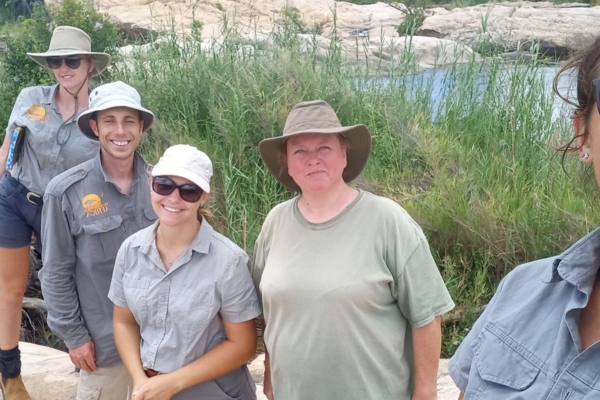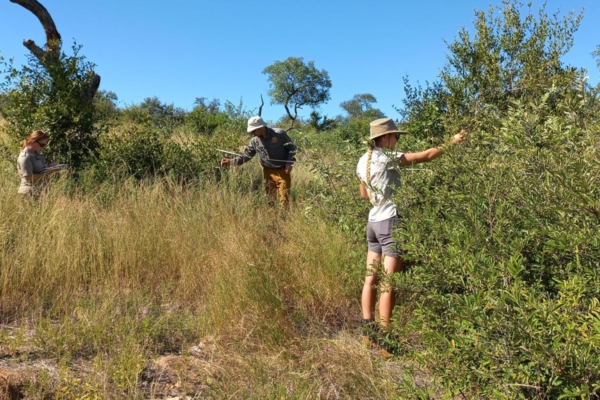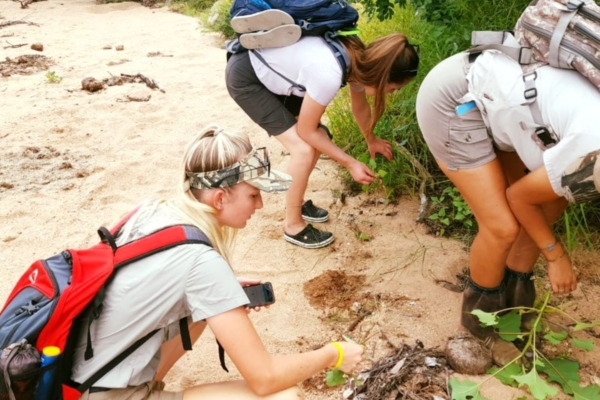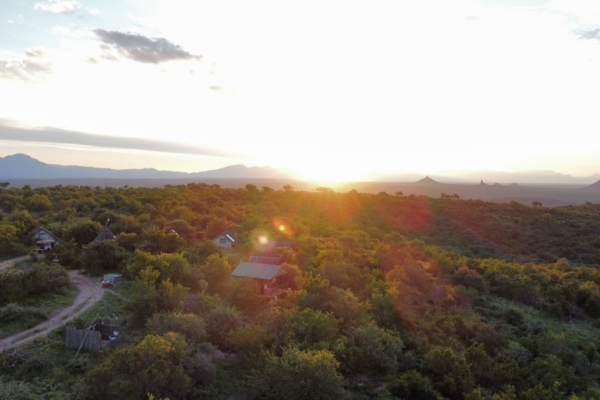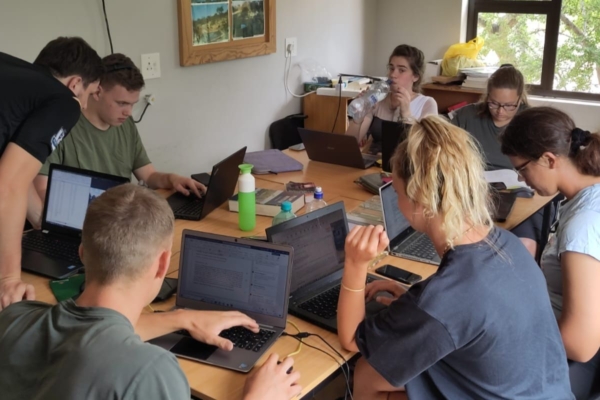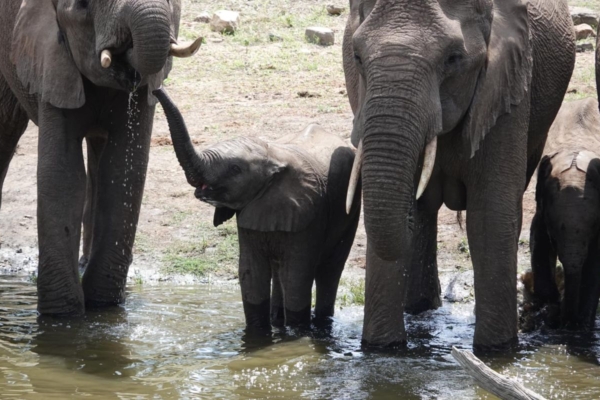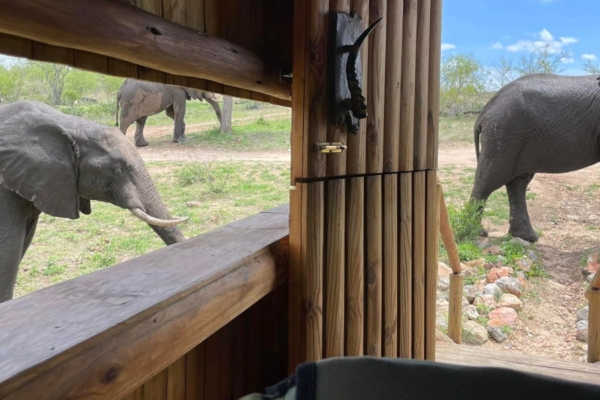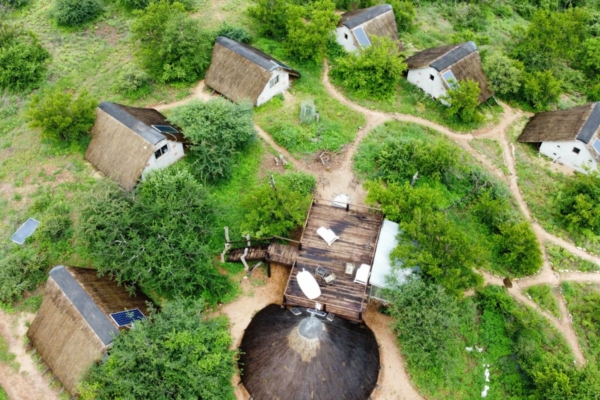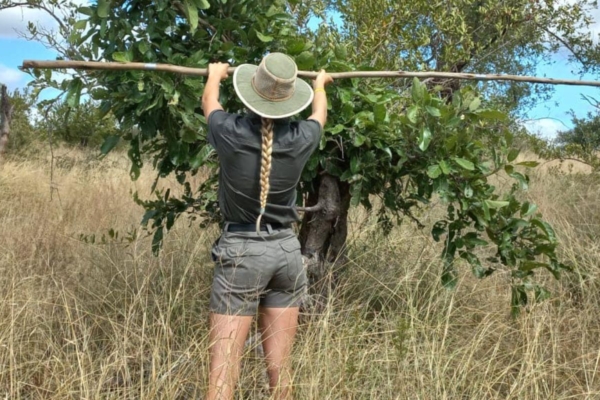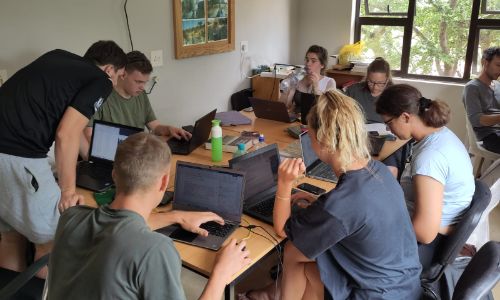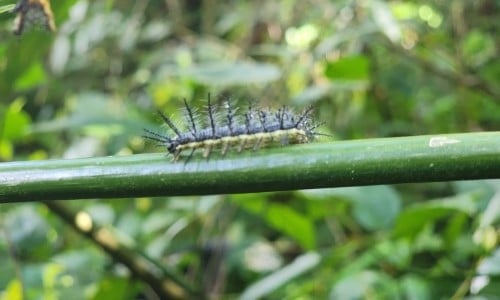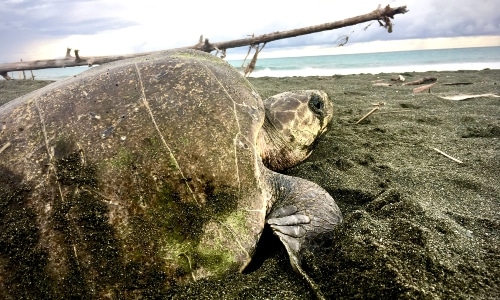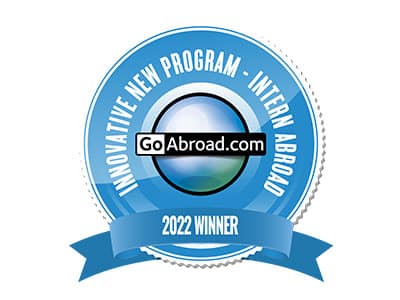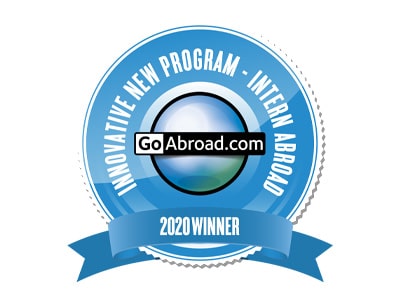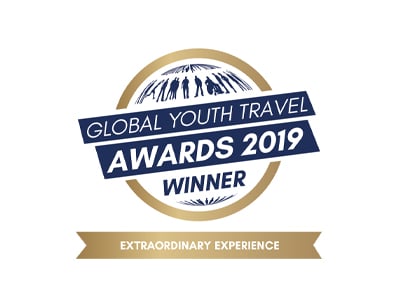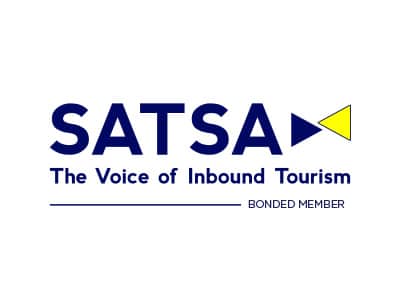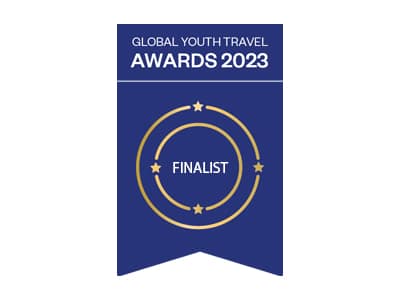Bachelor's Level Conservation Research Internship in South Africa
PROGRAM OVERVIEW
Travel to South Africa’s largest wildlife sanctuary, the Greater Kruger National Park, and research ways to protect its wildlife
This thrilling opportunity lets biology students gain incredible research experience while living and working in the Greater Kruger National Park alongside Africa’s most iconic wildlife.
This program places you with a long-standing environmental conservation organization with a research center situated in the Greater Kruger Park. This versatile organization engages in a range of wildlife management, landscape security, and community outreach projects all working towards one key objective: to support management in making informed decisions based on scientific evidence.
Research underpins all of the organization’s activities from anti-poaching units to vegetation control. As an intern, you’ll help conduct this research. There are multiple active projects at any time, so the focus of your internship depends on when you join and what you’re interested in. These projects could have you monitoring hyena populations, tracking temporal changes in vegetation, or developing elephant deterrents. Your findings can be used in a university thesis or published in peer-reviewed scientific journals too.
Learning objectives
- Real-world scientific research experience
- Practical in-field data collection skills
- Extensive knowledge of ecosystems within the Greater Kruger Park
- Insight into nonprofit wildlife conservation
- Findings can be used in a university thesis
ORGANIZATION
Transfrontier Africa is a long-standing wildlife conservation organization that works from its research facility in the Greater Kruger National Park in South Africa to develop wildlife management practices and strategies. They function as part of a network of wildlife research institutions to devise evidence-based projects to foster successful cohabitation of wildlife and local communities and respond to wildlife conservation crises.
Fueled by their research, the organization collaborates with management teams of wildlife parks and reserves, implements on-the-ground wildlife management and security strategies, and runs community outreach and education programs. With multiple projects on the go at any given time, the organization makes a tangible impact on the conservation of rare species, habitat protection, and anti-poaching efforts.
TASKS & REQUIreMENTS
Projects vary across the year, so the project you join depends on when you apply (see the projects we’re currently hiring for below). In any case, you’ll join a small team of two researchers and three field technicians and conduct independent research projects under the supervision of the research coordinator. Amidst a weekly schedule of team meetings, fieldwork, and short lectures on local wildlife when necessary, interns will conduct literature reviews, analyze data collected, and write reports.
Responsibilities
- In-field data collection and fieldwork such as collecting camera traps and mapping ecosystems
- Data processing and management
- Conducting literature reviews
- Writing methodologies, reports, and guideline documents
- Performing statistical tests and other kinds of data analysis
- Apply findings to real-world issues within the park and reserve management
- Give presentations among team members and possibly stakeholders
Requirements
- Studying towards a degree in biology, ecology, conservation science, or related field
- Advanced understanding of ecological systems
- Able to conduct literature reviews
- Familiarity with MS Office, R statistical program, and geographic information system software, with an interest in learning software for reporting and research
- Strong written and spoken communication with fluency in English
- Highly motivated and willing to work in remote field conditions
We are currently hiring for the following research projects:
Temporal Changes in Vegetation Structure and Communities
This project seeks to analyze vast data sets collected via fixed-point photography since 2019. The research aims to identify trends in vegetation phenology and identify the factors within the ecosystem that cause these trends.
Alien Vegetation Monitoring
This project seeks to study the effectiveness of control methods for invasive alien species, as these reduce biodiversity and disrupt ecological functions, being a threat to ecosystems and native species.
Wildlife Monitoring
This projects seeks to closely monitor threatened and iconic species (rhinos, wild dogs, Southern ground-hornbills, and vultures) and the data is shared with various conservation programs.
Ecological Carrying Capacity
This project seeks to yearly evaluate vegetation composition and density to assess the ecological carrying capacity of the reserve in order to compare to the game count data.
—
Along with Predator Diet Analysis, Subterranean Waters, and Human-Elephant Conflict projects. Depending on your interest, you can be assigned to a specific project, assist an MSc/PhD student on their research, or assist in the general ecological monitoring with the research team. The available projects and where you may thrive best will be discussed with you during the application process.
WHERE YOU’LL STAY
Interns will stay at the Ndlovu Bush Camp in Olifants West Nature Reserve within the Greater Kruger National Park. The camp consists of basic but comfortable brick chalets with thatched roofs and shared rooms, an open-air communal area, a kitchen, open-air bathrooms, and a viewing deck. All chalets are equipped with rudimentary solar panels, but electricity is limited. You’ll also occasionally work at the Reserves offices if your projects require it.
Safety & Support
Safety & Support
The camp and office are both safe from crime, however being an open camp in a Big 5 area, there are wildlife risks to be aware of. For this reason, interns are accompanied by professional security teams protecting the teams from local wildlife threats.
Communication
Communication
The camp is equipped with solar panels that provide electricity depending on the weather. The camp also has its wifi modem and signal connection however computer work can be challenging for the camp.
Meals
Meals
Interns are provided with three meals a day plus snacks at the camp apart from weekends if interns choose to participate in local outings. All food eaten while on external excursions will be at interns’ own expense. Meals at camp will be prepared by the interns themselves and other volunteers on a rota.
Location details
Location
Your camp is located in the Olifants West Nature Reserve which forms part of South Africa’s Greater Kruger Park. This is a Big 5 area of the park so you can expect some incredible wildlife sights from the camp’s viewing deck. The camp is also open, meaning wildlife is free to roam through.
DATES & RATES
Fee Breakdown
You can start your internship every week with arrivals on Monday.
What you’ll pay (2025 rates)
8 weeks USD 3,679
12 weeks USD 4,621
16 weeks USD 5,563
20 weeks USD 6,505
26 weeks USD 7,918
Inclusions
- Careful matchmaking. It takes time to find the right internship for each person, and we take this process very seriously.
- Initial interview with one of our team to gauge your skills, interests, and desired learning outcomes.
- An academic internship eligible for university credit. Check with your university to confirm if this internship qualifies for credit or alternatively we can assist you with purchasing transfer credits.
- Accommodation in a shared chalet
- Airport transfers upon arrival and departure from Hoedspruit Airport
- Daily meals (breakfast, lunch, dinner, and snacks during field work)
- Wifi access
- All project transport
- Participation in daily reserve management activities and research projects
- Monday town trips to Hoedspruit
- Official program T-shirt
- Assistance with your visa arrangement and other preparations
- An orientation program with your supervisor
- Supervision and support during your stay
- Regular check-ins during your internship with your supervisor
- Troubleshooting if needed
- A reference letter at the end of your internship
Exclusions
- Flights (or shuttle bus from Johannesburg Airport) to Hoedspruit Airport
- Visa and medical/travel insurance costs for the duration of your placement – must include cover for repatriation
- Meals during weekend outings/excursions
- Drinks, snacks, and items of personal nature (f.e. curios, gifts, clothing)
- Costs for additional excursions or activities
GALLERY
FAQs
Some of our most commonly asked questions for programs in South Africa.
What can I expect from a NGO internship in South Africa?
During your internship in South Africa you can expect to meet people from around the world, as well as indulging yourself into the culture of this beautiful country! If you want to know more about what to expect, make sure to check out our top 7 reasons for an internship in Cape Town.
Will I have time to explore South Africa during my internship?
Yes! We partner with various activity organizers that can offer discounts exclusive to Roots Interns, for example, a road trip through the Garden Route and bungee jumping off the world’s largest natural bungee. You may also explore the country on your own and we are happy to give recommendations.
Am I able to do an internship while on a study program in Cape Town?
Yes! You are able to do a part-time internship with certain organizations so that you can continue your studies, while also gaining valuable work experience.
Will I receive a stipend of any kind during my internship with Roots?
Unfortunately, no. When working with a nonprofit organization, your internship will be unpaid, but there are many ways to fund your internship. Your experience will bring a wealth of knowledge and opportunities for both professional and personal growth that are invaluable!
QUICK FACTS
HIGHLIGHTS
- Gain international conservation experience in the nonprofit sector
- Build real-world scientific research experience
- Develop extensive knowledge of South African wildlife and ecosystems
- Work on innovative wildlife and ecology research projects
- Live and work in the Greater Kruger National Park
HOW TO APPLY
If you’re ready to apply for this internship, here’s what to do:
APPLY
Fill in the application form (it will show in a new screen) which includes sharing your CV to us.
SPEAK WITH AN ADVISOR
We’ll set up a call with you to go through your application.
INTERNSHIP MATCHING
If we feel it’s a good match, we’ll set up a call between you and the supervisor for this internship.
PAYMENT
If everyone’s happy, we’ll provisionally confirm your placement! We’ll then send you the invoice for the deposit, getting started with the booking process and all the info you need.
CONFIRMATION
Only once we receive payment of the deposit your placement will be confirmed.
NEED TO MAKE AN ENQUIRY FIRST?
Or if you’d just like to ask us some questions about this internship first, just fill in the contact form below. We’ll be happy to assist!
"*" indicates required fields
RELATED PROGRAMS
Master’s Level Conservation Research Internship
- Min. 3 months
- Greater Kruger, South Africa
- Ecological Research, Wildlife Conservation, Data Projects
Wildlife Conservation Program
- Min. 8 weeks
- Recinto La Esperie, Ecuador
- Research, Education, Conservation
Sea Turtle Conservation Internship
- Min. 6 weeks
- Carate, Costa Rica
- Data Collection, Marine Conservation, Education, Research
RELATED BLOGS
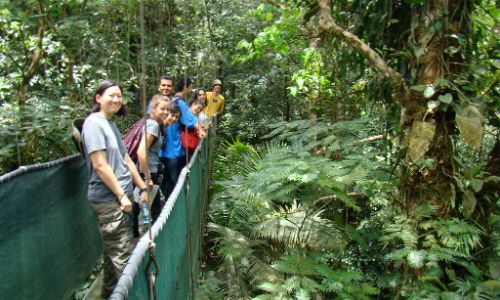 7 Reasons to do an Environmental Management Internship
7 Reasons to do an Environmental Management Internship
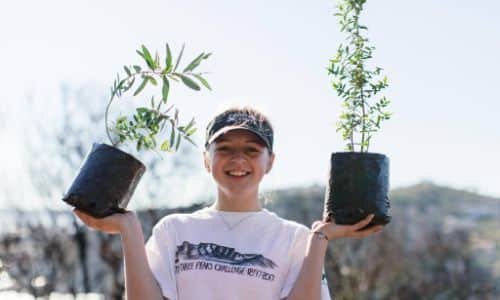 What is a Sustainable Internship?
What is a Sustainable Internship?
What is a Sustainable Internship?
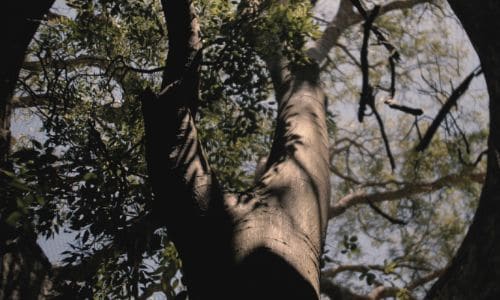 Best Environmental Internships for 2024
Best Environmental Internships for 2024

